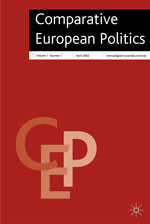The Problems with National Models of Integration: A Franco Dutch Comparison

More often than not, the notion of a national model of immigrant integration is held to be self-evident in the comparative scholarship. This type of reasoning, however, does not go without serious costs for the social sciences. Among these costs are the danger of reifying the categories used by the social scientist for analyzing complex social interactions and settings; the poor definition and biased selection of indicators aimed at proving rather than testing the consistence of a model; a limited and unsatisfying conception of how ideas translate into action; a confusion between scholarly ideal-types and political stereotypes. In order to address these problems, we proposed two research questions to our co-authors as a general framework for this special issue.
The first question is whether the notion of models is viable for comparative research on immigrant integration and citizenship. If not, the second question asks, are there available alternative ways for social scientists to account for cross-national differences? In order to address both questions, we proposed six working hypothesis to the contributors of this volume that were discussed at two seminars we organized.
The editors of the July 2012 issue (10.3) have selected several articles that are free to read online until August 2012.








